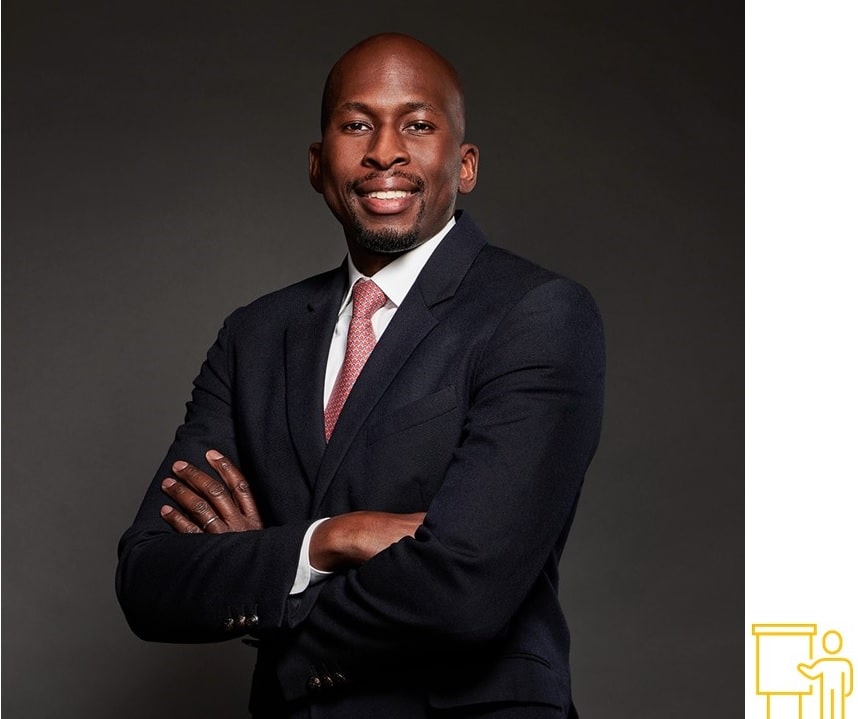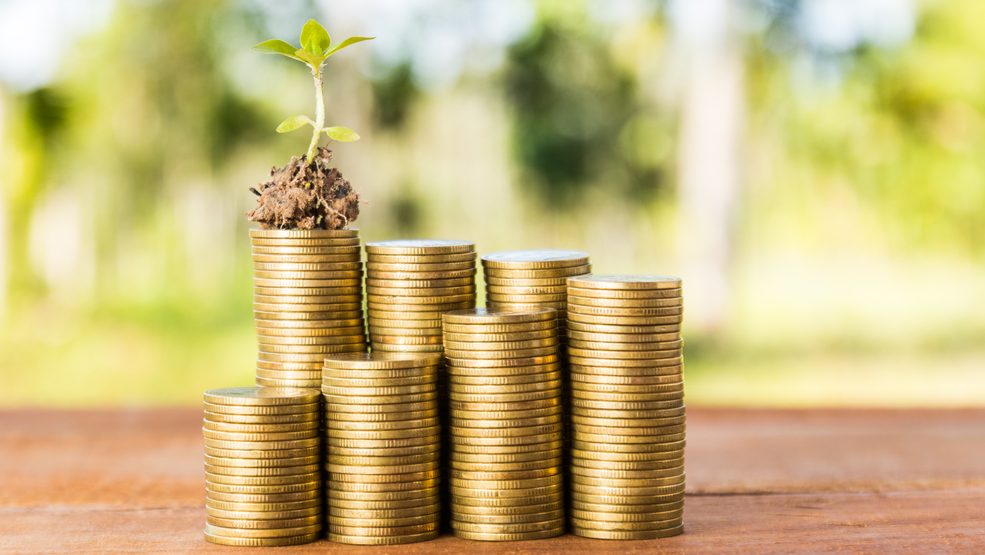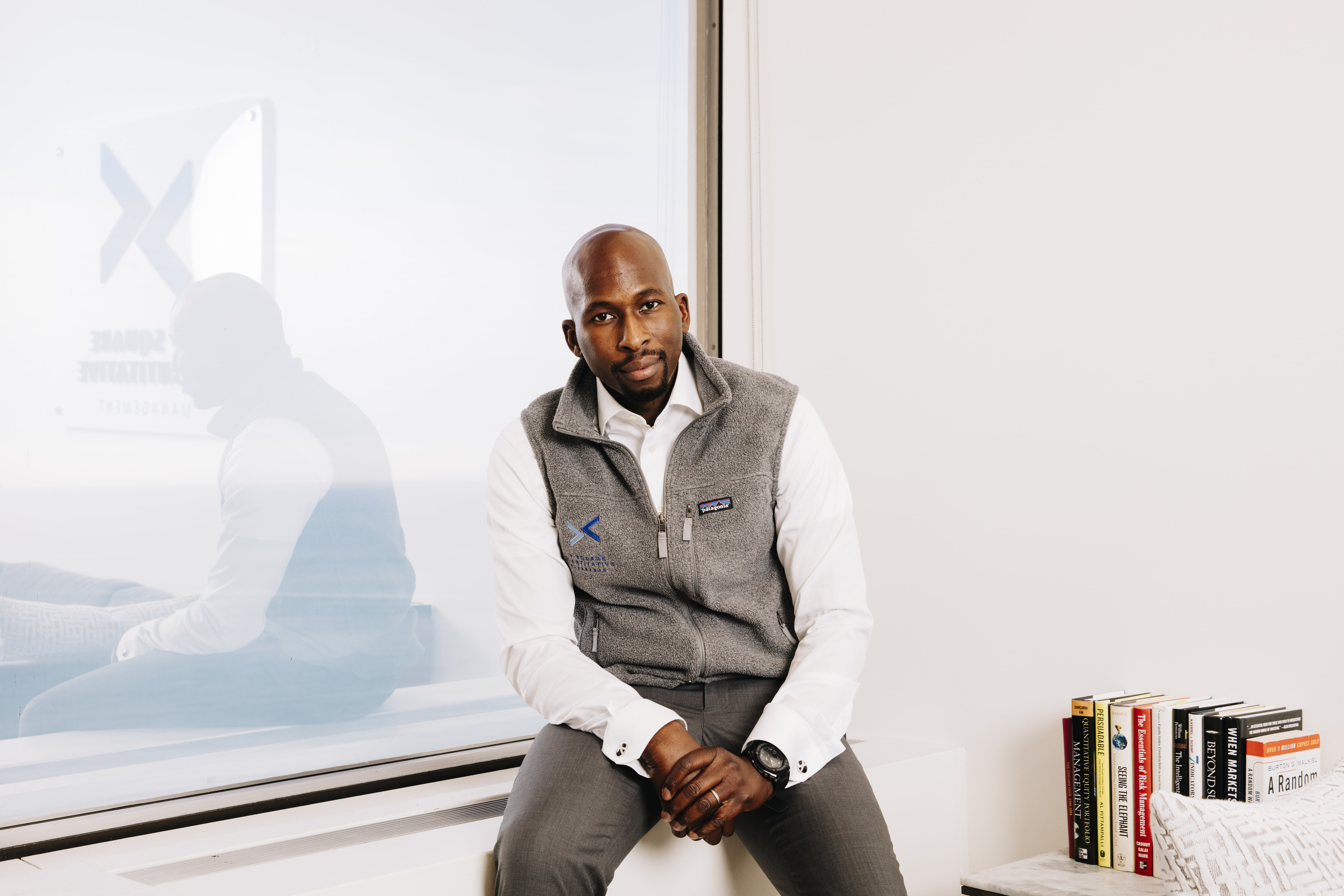Mamadou-Abou Sarr
President of V-Square Quantitative Management
Speaker Session Annuelle 20 CSR

Mamadou is the Founder and Chief Executive Officer of V-Square Quantitative Management, a global investment firm headquartered in Chicago. Mamadou founded V-Square in 2020 after an accomplished career in asset management whilst working for global financial services company across the U.S., Europe, Middle East and Africa. His investment firm specializes in financial engineering, development and management of quantitative portfolios and processing of sustainability big data. Industry leader in the field of sustainable investing and financial innovation, Mamadou’s previous role was global head of product development and sustainable investing at Northern Trust Asset Management in Chicago, where he was responsible for driving innovation and product development across asset classes. Mamadou spearheaded, developed and led one largest sustainable investing platform in the industry.
Mamadou received his bachelor’s in economics from the Université Paris-Saclay and holds a master’s in International project management from the European School of Management (ESCP), Paris. In 2014 he was named in the Financial News “Top 40 under 40 Rising Stars in Asset Management” in Europe, Middle East and Africa. In 2017, Mamadou was named a “40 under 40” by Crain’s Chicago Business. In 2017 he was also recognized in Top 50 Individuals who contribute the most to sustainable & responsible investment industry in the world (IRRI). Mamadou is actively involved in philanthropic and civic activities and is the co-founder of Les Beaux-Arts Paris Sarr Prize. He is a fellow of Leadership Greater Chicago since 2019, a member of the Economic Club of Chicago, an Adjunct Professor of Sustainable Investing at the Baumhart Center (Loyola University Chicago) and a guest lecturer of Impact Investing at the Wharton School of the University of Pennsylvania and Harvard Business School. He is a board member of the CFA Society Chicago, Art Institute of Chicago, the US SIF (The Forum for Sustainable and Responsible Investment), the Nature Conservancy Illinois Chapter and he is a member of Rush Health Equity Advisory Council (Rush Hospital). Mamadou is a French Foreign Trade advisor, appointed by decree from the Prime Minister of France and is a Certified Investment Fund Director (CIFD).
IHEE : Can you introduce yourself and tell us more about your link with IHEE ?
Manadou-Abou Sarr : I am the son of parents from Benin and Senegal who migrated to France in the seventies who gave my siblings and an amazing education. I am a husband and father to four lovely children who were born around the world. By trade, I am an international financier who co-founded V-Square Quantitative Management (V-Square) in 2020 after an accomplished career in asset management working for global financial services company across the U.S., Europe, Middle East, and Africa.
As a expert in asset management and sustainable investing, I was contacted by the IHEE to address the topic of Environmental, Social and Governance (ESG) Investing to a delegation of business and civic leaders visiting Chicago in March 2020. The timing is memorable as countries from around the world were rushing to put all resources at their disposal to contain COVID-19 and murmurs of lockdowns were starting to spread. I was just back from a business trip in Europe, not knowing that borders were to close shortly after. We had a fascinating exchange with the participants on the role of corporations (Shareholder’s value vs Stakeholder’s value), the relevance of ESG factors in the US versus the rest of the world, and the expectations from the new administration. I also enjoyed sharing my personal journey from the Chevreuse Valley in Essonne to Chicago and my management style which I like to describe as a blend of “French pragmatism and American optimism.”

Today, what are the challenges of a global asset management firm that focuses on CSR ?
My own random walk down Wall Street, starting my career as an FX trader to becoming the global head of sustainability and product innovation at a large asset management firm, taught me a lot. When I co-founded V-Square in early 2020, I had an informed view and a global expertise on sustainability issues gained through my thousands of engagements with investors, academia, and regulators around the world, discussing Environmental, Social and Governance (ESG) integration across asset classes. As an investment practitioner, I have seen the ESG industry move in an uncoordinated fashion, as if in a Brownian motion, leading to more complexity. Nowadays, it is a daunting task to address the lack of consensus in industry standards, untangle the plethora of ESG data, navigate a range of scoring methodologies, and assess the relevancy of ESG signals. I developed a Global Positioning System (GPS) approach to sustainable investing, one that focuses on materiality and profitability. I wanted to build an investment firm that has the power to understand quantitative data but also has the ESG expertise to decipher, harmonise and standardise this data leading to better informed investment decisions. For many, the Newton's cradle brings back memories of physics classes, yet for me, this image crystalizes so well this stage of the ESG industry and why V-Square is focusing on intentionality. With the surge of scoring methodologies, ex post facto could create false positives therefore I strongly believe that integration of material sustainability factors into investment portfolios needs to be intentional and not accidental to achieve targeted impacts.
CSR is reshaping companies in the USA and internationally, can you tell us more about how it is impacting investments ? Are there good practices around the world to get inspired of ?
With over $35 trillion of global sustainable assets around the world, sustainable investing has become one of the fastest-growing segments in the asset management industry. With such a sustained growth over the years and positive forecasts on asset growth, sustainable investing is now finding its way into many investors’ strategic asset allocations. I believe that value created at the expense of the non-investor stakeholders can be short-lived. Over long periods of time, stakeholder and shareholder interests become increasingly aligned and we take these factors into consideration when making informed investment decisions.
There has been a steady evolution of sustainability, resilience, and socially responsible actions and needs in recent years. This can be seen across consumers, businesses, regulators, and policymakers worldwide. The global pandemic, racial injustice, and natural disasters impacted the lives of many people and took a significant toll on the global economy in 2020. For the economy to Build Back Better, I believe companies will have to focus on their bottom lines alongside their CSR ethos. Over the past 18 months CSR took a center stage as companies were adamant to tell their stories and make strong statements on Diversity & Inclusion and climate change for example. 90% of S&P 500 Index companies publish sustainability reports in 2019 compared to 53% in 2012. This tremendous shift in disclosure is mostly driven by consumers and investors in the U.S. It is impacting my industry as more asset owners are paying attention to CSR reports and ESG scores of companies/portfolios. Companies that are leading the way on ESG practices do two things well: they manage their exposure to ESG risks, and they seek to monetize their ESG opportunities with investors willing to pay a higher price for sustainable products. You can find good ESG practices across sectors, and in my role as portfolio manager, I identify good companies by pairing financials and ESG performances.
According to you, how will CSR impact global competition for businesses ? How will this impact leadership skills and training needs for future leaders ? How do you think these evolutions will impact companies in the future ?
The global pandemic, social injustice, and natural disasters impacted the lives of many people and took a significant toll on the global economy. For the economy to Build Back Better, I believe that governments, companies, and individuals must embrace many of the core tenants of Environmental, Social, and Governance (ESG) investing. In order to address the pervasive inequality and injustice, corporations and other organizations are working towards a better "G" in numerous ways. Diversity and inclusion along with unconscious bias training became a priority for companies and organizations. Firms are pledging to implement diversity in leadership roles as well as in the boardroom to show the way. Rather than continuing to rely on goodwill to implement diversity, those issues are being made an integral part of governance metrics, along with board accountability, board responsiveness, director independence, pay policies, risk oversight, etc.
One of the most transformative leadership programs I had the privilege to be part of, is Leadership Greater Chicago (LGC), a year-long civic leadership development program, exposing participants in an immersive manner to the major socioeconomic issues faced by the City of Chicago and the Greater Chicago.
At the beginning of the program, we were introduced to the concept of human-centered approach to design by prominent leaders from the Illinois Institute of Technology (IIT), Institute of Design in Chicago. I must admit that I was not familiar at all with such a process, mindset and approach to solving complex problems. After struggling for a few months on the application of this concept to address societal issues, I finally emptied my cup to fully embrace this approach and find applications in my civic and professional life. Human-Centered design focuses on understanding the perspective of the person who experiences challenges, their needs, and whether the solution that has been designed for them truly meets their needs effectively or not.
I have embedded this mindset and approach in the fabric of my company, and the current crisis enabled me to empathize, define, ideate, prototype, test and iterate financial solutions aligned with a changing environment.
How has the health crisis impacted or transformed your professional practice ? According to you, what are the new competencies managers (in your field) should acquire in the midst of current transformations ?
As I witnessed the bravery and leadership of essential workers, community organizers and civic leaders during this pandemic, I reflected on leadership styles and on the dangerous sandbox of “Leadership Positions” in the corporate world. Leadership abilities of corporate executives does not emerge as a new skillset paired with titles so often mistaken as epithets. Leadership is a “work in progress” state of mind allowing individuals to inspire, empower and drive teams towards a common goal.
The outbreak of the COVID-19 pandemic, the tragic death of George Floyd and the heartfelt call for racial equity require corporate leaders to draw more on their empathy and courage as a necessary condition for positive change. Empathy must move from the soft skills etiquette to hard skills and, leaders must work as intensely in that area as they do when they hone other components of their hard skills leadership tool kit.
I would define empathic leadership as the ability for any individuals to transcend oneself and demonstrate altruism in a leadership capacity. If we were to separate the notion of leadership from the one of civic duty, the informality of the authority of a civic leader makes his or her actions extremely noble and powerful. Can the empathic traits of most civic leaders be translated into the corporate world? The answer is yes. More than ever, our leadership acumen must integrate compassion, virtue, a sense of higher purpose and the ability to promote impactful changes for the benefit of all stakeholders.

You have a rich and varied experience, having lived in France, the UK and the U.S.A., etc. What did these different life experiences and cultures bring to your personal and professional trajectory ?
Erol Ozan eloquently stated that “Some beautiful paths can’t be discovered without getting lost”; I have trained and apprenticed at large and small financial services companies around the world including HSBC Global Asset Management, Morgan Stanley Investment Management, Amundi Alternative Investments and Citi through FX trading, strategy, and business development roles. My passion for the field of sustainability can be traced back to childhood and in adulthood I was able to spearhead the development of a global ESG platform at a large US asset manager to finally reconcile my true passion with my investment acumen. My international career led me to work across four continents and five different cities (Paris, Dakar, London, Abu Dhabi, and Chicago). As I reflect on my professional journey thus far, I am grateful that I had a chance to step into regional and global roles at an early stage and was able to lead international teams. Managing within different cultures is a fascinating yet complex exercise. In my global leadership roles, my message needed to transcend cultures and resonates with partners with different reference points, values, aspirations, etc. For example, my baseball and American football analogies fell short in certain parts of the world where these sports are not broadcasted. So instead of trying to galvanize my teams with textbook leadership talks, I put more emphasis on empathy and being a player-coach.
I would define empathic leadership as the ability for any individuals to transcend oneself and demonstrate altruism in a leadership capacity. More than ever, our leadership acumen must integrate compassion, virtue, a sense of higher purpose and the ability to promote impactful changes for the benefit of all stakeholders. It is my locksmith key to global leadership.
My career and personal travel bug led me to visit over seventy countries around the world which shaped my leadership style, empathy, and championing of diversity.
Do you have a source of inspiration to share with our readers ? And why ?
More than a quote, I live by a Funali expression "Dowe Tan" which can be translated by "Altius (higher)" in Latin.
“Everyday before going to school, my father would raise my right hand in the air and pronounce these two words in a divine way: “Dowe Tan!”” It was our rally cry ! A way to galvanize me to stay focused, try my best and never give up. I believe in having a clear sense of identity, I was raised to believe that to go somewhere, you need to know where you came from.



